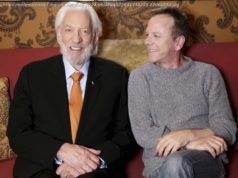Former U. S. Sen. Jim Bunning, a major league pitching star who took his aggressive, no-nonsense brand of competitiveness into the game of politics as a congressman and senator from Kentucky, died at the age of 85.
Former U. S. Sen. Jim Bunning, a major league pitching star who took his aggressive, no-nonsense brand of competitiveness into the game of politics as a congressman and senator from Kentucky, died at the age of 85.
A strong right-hander with more than 100 wins and a no-hitter in each of the two major leagues, Bunning enjoyed national fame as an athlete before capturing Kentucky’s 4th congressional district in 1986.
The staunchly conservative Republican from Northern Kentucky’s Campbell County easily won four successive two-year terms before giving up his House seat to run for the U. S. Senate in 1998. He served in the Senate from 1999 to 2010.
At 6 foot-3, Bunning was physically imposing, and on both the baseball diamond and Capitol Hill he was known for a toughness that could be intimidating.
“He was a hard man, but you’ d want him on your side because you knew he would be ready to play and he would give you everything at his command, ” a Detroit News sportswriter, Joe Falls, wrote years ago.
He was referring to Jim Bunning the pitcher but he could just as well have been talking about the politician.
In his 15-year career in the big leagues, Bunning developed a reputation for throwing the ball close to batters, trying to back them off the plate. “If he had to brush back his mother, I think he’ d do it to win, ” former Detroit Tigers second baseman Frank Bolling said of his one-time teammate.
In his second career, instead of baseballs, Bunning went after opponents and issues with strong rhetoric and an intense certainty in the correctness of his own views.
That was especially true with abortion. A Roman Catholic with nine children, Bunning voted consistently to limit abortion as an option for women and had contempt for colleagues who softened their position on the highly emotional issue.
“My training, from the very first day that I was trained as a kid, was that anything like that was wrong, ” the Jesuit-schooled Bunning once said in a Courier-Journal interview. “Not only legally wrong, but morally wrong.”
Principled — that’s how admirers described Bunning. To critics rigid was a more appropriate adjective. Unafraid of confrontation and unencumbered by an active sense of humor, Bunning could come across as pugnacious.
“He’s as negative as any person I’ ve ever met in my life, ” state Sen. Michael Moloney, a Democrat, said of Bunning in 1983 when he made an unsuccessful run for governor.
Bunning himself liked the word consistent to describe his record. When an interviewer once suggested his House votes were easy to predict, he replied, “Thank you, I appreciate that.”
While warm and fuzzy were definitely not his style, in private he could be personable and engaging. “I can’ t imagine working with a more cooperative person, ” former Rep. Andy Jacobs Jr. of Indiana, a fiscally conservative Democrat who cooperated with Bunning on Social Security legislation, once said. “He’s a peach.”
Bunning had run-ins with Democrats more liberal — and more partisan — than Jacobs, but sometimes fellow Republicans also felt his sting.
In both the state Senate, where he served one term, and in the U. S. House, he criticized GOP leaders as too willing to embrace compromise, a commodity with which Bunning was never comfortable.
“There are a lot of compromises you can make in politics, but your principles are not one of them, ” he said in a 1997 remark aimed at the House leadership team headed by Speaker Newt Gingrich of Georgia.
But as former GOP House leader Bob Michel of Illinois once put it, a lawmaker’s “sharp edge tends to get rounded off” the longer he or she serves, and even Bunning was not immune to that process.
After he had been in Congress a few years, he voted for a Democratic deficit-reduction bill even though it included a child-care program that he considered excessive.
Bunning — whom former Republican Rep. Fred Grandy of Iowa once called “a fiscal Shiite” — told a reporter after the vote, “Now I would never have done that compromising six (or) eight years ago. I think that’s some progress. I really do. I think I’ m seeing a bigger picture on a daily basis up here.”
In his 1998 Senate race he made a noticeable effort to appear more moderate, talking about the need to clean up the environment and educate children, endeavors that he had not emphasized previously. In fact, in the House he voted to cut the Environmental Protection Agency budget and kill the U. S. Department of Education.
The move from his Northern Kentucky base to the statewide stage also brought attention to his propensity for slinging rhetorical fastballs.
In early 1997, as he was gearing up his Senate candidacy, Bunning told a Cincinnati radio show that Louisville had been devastated by recent flooding because the city failed to put up its floodgates in time.
The remark, an implicit criticism of Democratic Mayor Jerry Abramson, was totally in error — and an embarrassment for the would-be senator.
But the lessons learned by Bunning and the changes in him were at the margins. His public demeanor grew a little softer. He seemed a little less dogmatic. But Bunning ended his political career pretty much the way he started it.
“Sometimes when you believe very deeply in an issue, very deeply, people take that for being arrogant and aggressive, ” he once told a Courier-Journal reporter. “I think it’s being honest.”
James Paul David Bunning was born Oct. 23,1931 in a Covington hospital, the second of three sons. His father, Louis Bunning, worked four decades for a Northern Kentucky company that made ladders. His mother, Gladys Best Bunning, was from a Bracken County farm family that had moved to Newport.
His parents were, their famous son later said, “very ordinary, salt of the earth people” who worked themselves out of tight finances and into the middle class.
The Bunnings scraped together the money to send their middle child to Jesuit-run St. Xavier High School in Cincinnati, where he was a standout in basketball, football and baseball.
He went to Cincinnati’s Xavier University on a basketball scholarship but continued playing other sports. After his freshman year, the Detroit Tigers signed him to a $150-a-month contract but with a clause allowing him to miss spring training until he finished college — which he did in three-and-a-half years.
Also while in college, he married his childhood sweetheart, Mary Catherine Theis.
Bunning had to supplement his minor league salary with various jobs, but he made it big in 1957, his first full season with the Tigers. That year he won 20 games, pitched three perfect innings in the All-Star Game and was second in American League strikeouts.
He never again won 20 games in a season, but he won 19 in 1962 and, after being traded to the Philadelphia Phillies in 1964, he reached 19 three years straight. His career total was 224 wins.
Bunning was best known for pitching a no-hitter in each of the two leagues — for Detroit in 1958 against Boston in the American and for Philadelphia in 1964 against the New York Mets in the National. The latter was a perfect game.
Bunning retired as a player in 1971 and managed minor-league teams for five years.
Home
United States
USA — Cinema Jim Bunning, Hall of Fame pitcher and ex-U. S. senator from Kentucky,...






